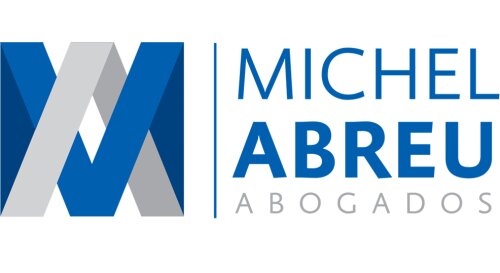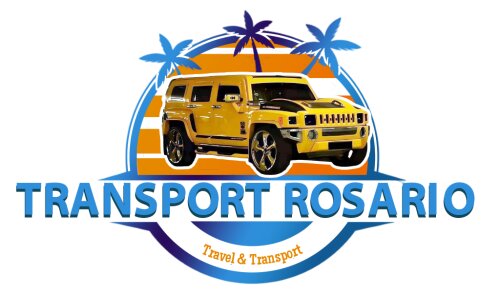Best Franchising Lawyers in Punta Cana
Share your needs with us, get contacted by law firms.
Free. Takes 2 min.
List of the best lawyers in Punta Cana, Dominican Republic
About Franchising Law in Punta Cana, Dominican Republic
Franchising in Punta Cana, Dominican Republic, is a growing business model that allows local entrepreneurs to benefit from established brand names and operational procedures. The tropical tourism boom in Punta Cana creates an appealing landscape for successful franchises in hospitality, food service, and retail sectors. However, navigating the legal complexities of franchising can be challenging. In the Dominican Republic, franchising agreements are influenced by the country's commercial law and international best practices.
Why You May Need a Lawyer
Seeking legal advice is crucial in various franchising scenarios. Common situations include negotiating and drafting a franchise agreement, understanding local market regulations, or resolving disputes between franchisors and franchisees. Legal guidance helps ensure compliance with Dominican regulations, protecting your rights while avoiding common pitfalls. Moreover, specialized legal assistance is invaluable when handling issues related to intellectual property, leasing arrangements, and exit strategies from a franchise.
Local Laws Overview
The Dominican Republic's legal framework for franchising involves various aspects of commercial law. Intellectual property rights are governed by national laws, which are important for protecting trademarks and trade secrets. Franchise agreements should be meticulously crafted to comply with the Commercial Code, covering aspects like contract validity, obligations, and dispute resolution. Additionally, the Dominican Republic's adherence to international treaties, like the Paris Convention for the Protection of Industrial Property, influences franchising practices.
Frequently Asked Questions
What is considered a franchise in Punta Cana, Dominican Republic?
A franchise involves a business model where a franchisor grants the franchisee the right to operate a business under the franchisor's brand, using their business model and systems in exchange for a fee or percentage of sales.
Do franchise agreements need to be registered?
While there is no mandatory registration requirement for franchise agreements in the Dominican Republic, it is advisable to have a clear, legally sound contract to safeguard both parties' interests.
Are there specific disclosure requirements for franchisors?
The Dominican Republic does not impose specific pre-contractual disclosure laws for franchisors, but providing comprehensive information is a common practice to foster transparency and trust.
How are disputes in franchising usually resolved?
Franchise agreements typically include dispute resolution mechanisms. In Punta Cana, common methods include negotiation, mediation, and arbitration, with court proceedings being a last resort.
What are the tax implications of franchising in Punta Cana?
Franchisees must comply with local tax regulations, including income tax, VAT, and other applicable taxes. Legal advice can help structure deals effectively to minimize tax liabilities.
Can foreign franchisors operate in Punta Cana?
Yes, foreign franchisors can operate in Punta Cana. However, they must adhere to local regulations, including those concerning foreign investments and trademark registration.
What are the typical fees associated with franchising?
Franchising fees in Punta Cana may include initial fees, ongoing royalties, and marketing contributions. These should be clearly defined in the franchise agreement.
Is it possible to terminate a franchise agreement early?
Termination conditions should be outlined in the franchise agreement. Legal advice is crucial for understanding any penalties or obligations related to early termination.
What rights do franchisees have under Dominican law?
Franchisees have the right to operate their business within the parameters specified by the franchisor, alongside protection against unfair contract terms and practices.
Are there limits on what can be included in a franchise agreement?
Franchise agreements must comply with overarching legal principles, such as fairness and reasonableness, to avoid clauses that could be deemed unenforceable.
Additional Resources
For individuals seeking further information on franchising, several resources and organizations can be of assistance:
- Ministry of Industry and Commerce: Offers insights into commercial regulations and trademarks.
- National Office of Industrial Property (ONAPI): Manages trademark registrations and intellectual property matters.
- Local Chambers of Commerce: Provide networking opportunities and resources for franchising businesses.
- The Dominican Franchise Association: A valuable source for franchising support and advocacy.
Next Steps
If you are considering entering into a franchising agreement in Punta Cana, it is advisable to consult with a local lawyer specializing in franchise law. They can assist with drafting and negotiating agreements, ensuring compliance with local regulations, and protecting your business interests. To proceed, you might contact a legal professional in Punta Cana, attend informational seminars hosted by local business associations, or leverage online legal platforms that connect clients with reputable lawyers in the Dominican Republic.
Lawzana helps you find the best lawyers and law firms in Punta Cana through a curated and pre-screened list of qualified legal professionals. Our platform offers rankings and detailed profiles of attorneys and law firms, allowing you to compare based on practice areas, including Franchising, experience, and client feedback.
Each profile includes a description of the firm's areas of practice, client reviews, team members and partners, year of establishment, spoken languages, office locations, contact information, social media presence, and any published articles or resources. Most firms on our platform speak English and are experienced in both local and international legal matters.
Get a quote from top-rated law firms in Punta Cana, Dominican Republic — quickly, securely, and without unnecessary hassle.
Disclaimer:
The information provided on this page is for general informational purposes only and does not constitute legal advice. While we strive to ensure the accuracy and relevance of the content, legal information may change over time, and interpretations of the law can vary. You should always consult with a qualified legal professional for advice specific to your situation.
We disclaim all liability for actions taken or not taken based on the content of this page. If you believe any information is incorrect or outdated, please contact us, and we will review and update it where appropriate.












